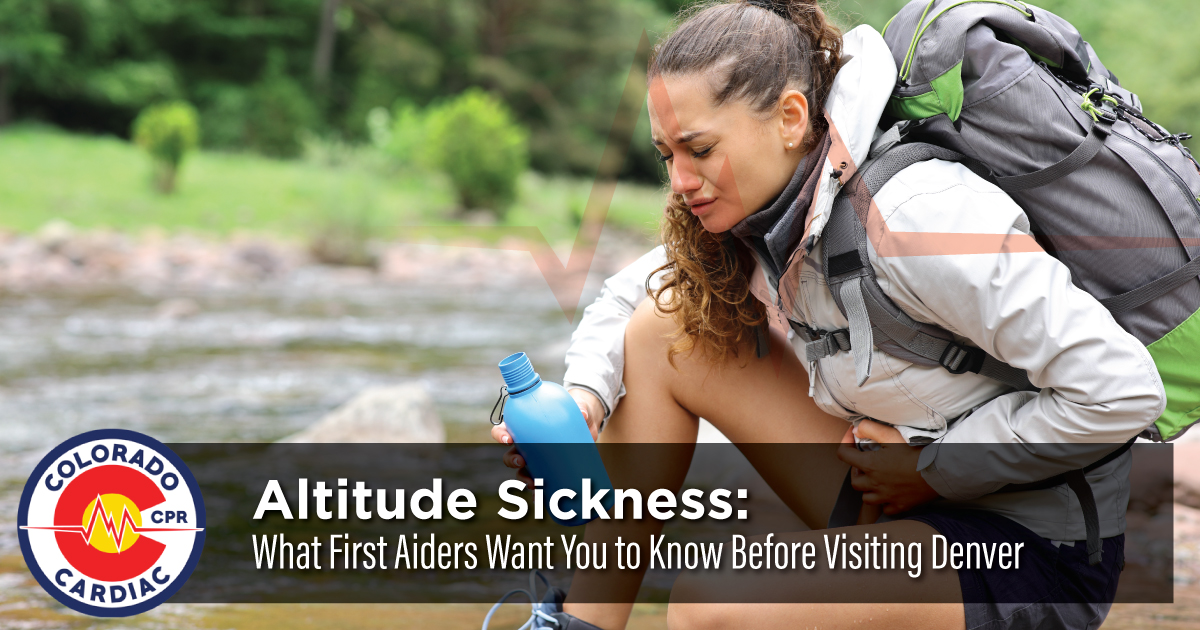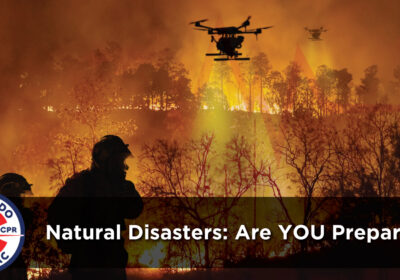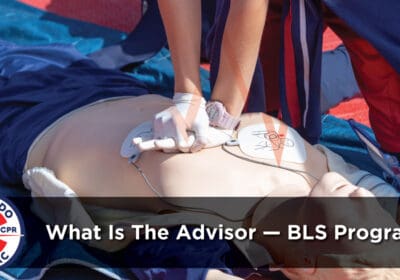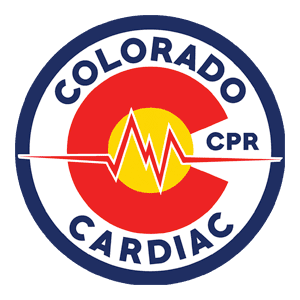Altitude Sickness: What First Aiders Want You to Know Before Visiting Denver

Denver, Colorado, is famous for its sunshine, mountain views, and “Mile High City” nickname. But that mile-high elevation — 5,280 feet (1,609 meters) above sea level — can catch visitors by surprise.
Travelers arriving from lower elevations, including those flying in from overseas, may experience altitude sickness during their first days here.
First aiders are often the ones who can step in with advice and support. Knowing what altitude sickness looks like, and how to prevent and manage it, can help keep your trip to Denver safe and enjoyable.
What Is Altitude Sickness?
Altitude sickness (also called acute mountain sickness) happens when your body doesn’t get enough oxygen at higher altitudes. The air is “thinner” in Denver than at sea level, which means less oxygen in each breath. Most people adjust within a day or two, but some develop uncomfortable symptoms.
Signs and Symptoms to Watch For
Most symptoms begin 6–24 hours after arrival. Common signs include:
- Headache (most common)
- Fatigue or unusual tiredness
- Dizziness or lightheadedness
- Shortness of breath with activity
- Nausea or loss of appetite
- Trouble sleeping
Get medical help if you notice:
- Severe shortness of breath, even at rest
- Confusion, trouble walking straight, or unusual clumsiness
- Persistent vomiting
- Blue lips or fingertips
How to Prevent Altitude Sickness First aiders often share these simple but effective tips with travelers:
- Take it easy at first: Avoid strenuous activity for 24–48 hours.
- Stay hydrated: Drink water regularly, but don’t force excess amounts.
- Skip alcohol (and limit caffeine): Both can worsen dehydration and sleep problems.
- Eat light meals, rich in carbohydrates (pasta, rice, bread, fruit).
- Listen to your body: Rest if you’re tired.
First Aid for Mild Symptoms
- If you or someone you’re traveling with develops mild altitude sickness, here’s what can help:
- Rest and drink fluids
- Take over-the-counter pain relief for headaches (ibuprofen, acetaminophen)
- Avoid overexertion until symptoms improve
- Watch carefully for worsening signs
If symptoms don’t improve — or if they become severe — seek medical attention right away. In some cases, moving to a lower elevation is the best treatment.
The Takeaway
Altitude sickness is usually mild and temporary, but it’s something every visitor to Denver should be aware of. First aiders should stress the importance of prevention, early recognition, and knowing when to seek help. With a little preparation, you’ll be ready to enjoy everything the Mile High City has to offer.
#FirstAid #AltitudeSickness #MileHighCity #TravelHealth #StaySafe #Denver #3CPR
Further Reading:
- Emergency Care 14th Edition (2020)
- NAEMT Advanced Medical Life Support 4th (2024)
- Oxford Handbook of Expedition and Wilderness Medicine, 3rd Edition (2024)
Training Opportunities:
- For American Heart Association First Aid classes and NAEMT AMLS certification training contact our office at 720.639.2623 or www.3cpr.org
- For tailor-made First Aid and CPR classes or emergency medicine presentations contact our Program Manager at ts@3cpr.org
- When enrolling for a CPR, First Aid or PALS class, use the promo code: 3CPRblog for a 15% discount!
Blog Written & Edited By:
- Mark Tozer / Savannah Stuart – The 3CPR Team
Related Posts

Natural Disasters: Are YOU Prepared?
NEWS YOU CAN USE: Merrian-Webster Dictionary defines a natural disaster as “a sudden and terrible…

Which Water is Best?
NEWS YOU CAN USE: During the mid to late 1980s, the bottled water craze began…

What Is The Advisor – BLS Program
The program is a specialized certification pathway developed by the AHA for individuals who have successfully completed the…
